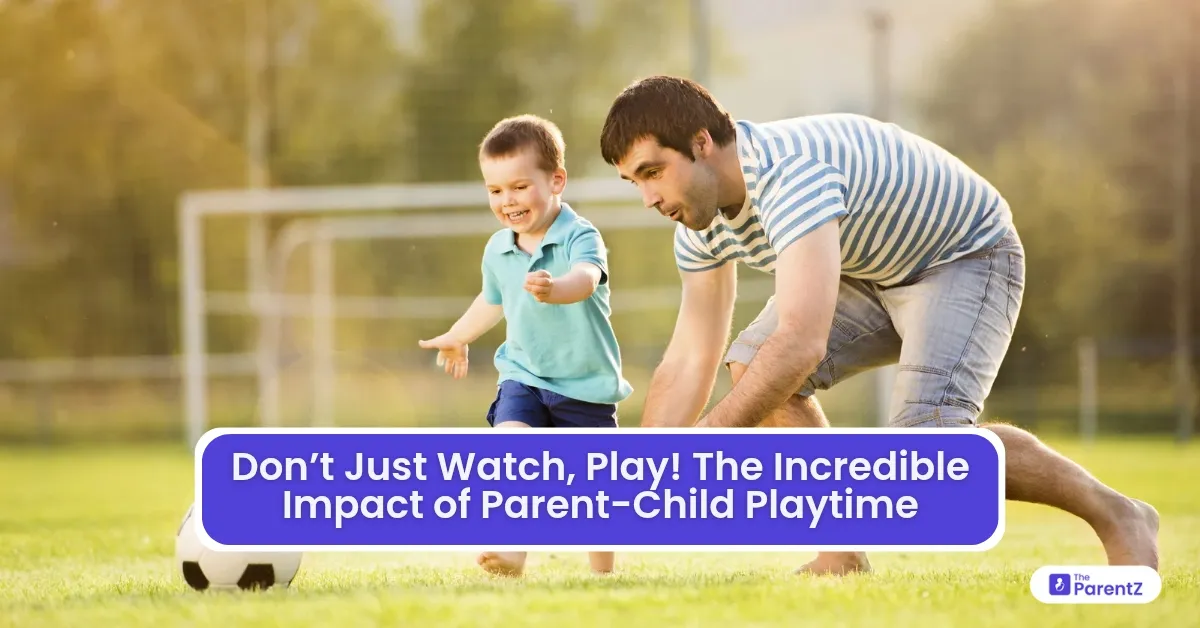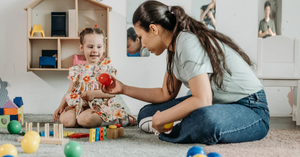If you’re a parent today, you know life isn’t what it used to be. Workdays stretch into evenings, emails ping at all hours, and the family calendar is packed tighter than ever. With so much going on, playtime with your child can easily slip to the bottom of the to-do list. But here’s the truth: those moments of play aren’t just “nice to have”; they’re essential, and their impact lasts a lifetime.
Why Is Parent-Child Playtime Disappearing?
Let's be real about why parent-child playtime is becoming rarer:
- Our Schedules Are Packed: Many of us are juggling hybrid work arrangements, side hustles, and household responsibilities. The 9-to-5 has morphed into the "always-on."
- Screens Are Everywhere: Our kids have access to entertainment that we never had growing up. It's easy to let them get absorbed in their digital worlds while we handle "important adult stuff."
- We're Exhausted: Mental load is real, folks. By the time we get a free moment, we're often running on empty.
- The Pressure Is Intense: Social media shows us perfectly curated "play moments" from other families that make our quick games of catch seem inadequate.
- We Didn't See It Modeled: Many of us grew up with the "children should be seen and not heard" mentality, or with parents who were too busy working to play with us.
But here's the thing—we’re not here to heap on more parent guilt. You're already doing an amazing job. We just want to share why making even small pockets of play time matter so much and how you can make it happen without losing your mind.
Why Playtime Matters So Much
When parents and children play together, something magical happens; bonds are built, trust grows, and learning takes place in ways that no lesson or screen ever could.
- Emotional Connection: Play is a child’s language. When you join in, you’re telling your child, “I see you, I’m here with you, and you matter to me.” This builds a foundation of love and security that helps kids feel safe and understood.
- Social and Emotional Skills: Through play, children learn how to share, cooperate, and handle frustration. They practice empathy and learn how to navigate relationships, skills that are crucial for their future.
- Cognitive Growth: Playtime sparks creativity, problem-solving, and flexible thinking. Games, puzzles, and pretend play all help develop memory, attention, and language skills.
- Physical Health: Active play builds coordination, balance, and strength. It also helps kids (and parents!) burn off stress and energy in a healthy way.
- Stress Relief for All: Play isn’t just good for kids. It’s good for parents, too. It can be a welcome break from adult worries, helping you recharge and see the world through your child’s eyes.
The Hidden Perks for Parents
Playing with your child isn’t just about helping them grow; it’s a chance for you to reconnect with your own sense of fun and imagination. Many parents report that playtime is refreshing and helps them better understand their child’s personality, humor, and worries. It can also improve communication, making it easier to talk about tough topics down the road.
How to Make Playtime Happen Even When Life Is Hectic
Here's how to fit playtime into your already packed life:
Start Small
We're talking 10-15 minutes. That's it. Quality trumps quantity every time. A focused 10 minutes of play where you're fully present beats an hour of distracted half-attention.
Schedule It
We know this sounds unrealistic, but in this age, if it's not scheduled, it often doesn't happen. Block off "play dates" with your kids just like you would an important meeting.
Embrace Parallel Play
Need to cook dinner? Invite them to "cook" alongside you with some play food or safe kitchen tools. Folding laundry? Make a game of matching socks or building "laundry mountains."
Use Transition Times
Those in-between moments, waiting for the bus, driving to soccer practice, standing in the checkout line, are perfect for quick games like I Spy or silly face contests.
Put Down Your Phone
We know this is difficult. But try designating certain times as phone-free zones. The notifications will still be there after your playtime.
Let Them Lead
Don't worry about creating Pinterest-worthy play experiences. Just ask, "What should we play?" and follow their lead. Kids are natural play experts!
Combine Play with Chores
Race to see who can pick up toys faster. Pretend you're robots while putting away groceries. Play "I spy" while running errands.
Create a "Yes Space"
Designate one area of your home where play is encouraged and safety concerns are minimal, so you can relax a bit and enjoy rather than constantly saying "be careful!"
Conclusion
Parenting today is tough, and every family’s situation is unique. The goal isn’t perfection or adding more pressure; it’s about finding moments to connect, however small they may be. If you miss a day, don’t beat yourself up. What matters is showing up when you can, in the ways that work for your family.
Remember, your presence is the real gift. By making time to play, you’re giving your child confidence, joy, and memories that will last a lifetime. So next time you have a few minutes, don’t just watch; jump in and play. You’ll both be glad you did.








Be the first one to comment on this story.